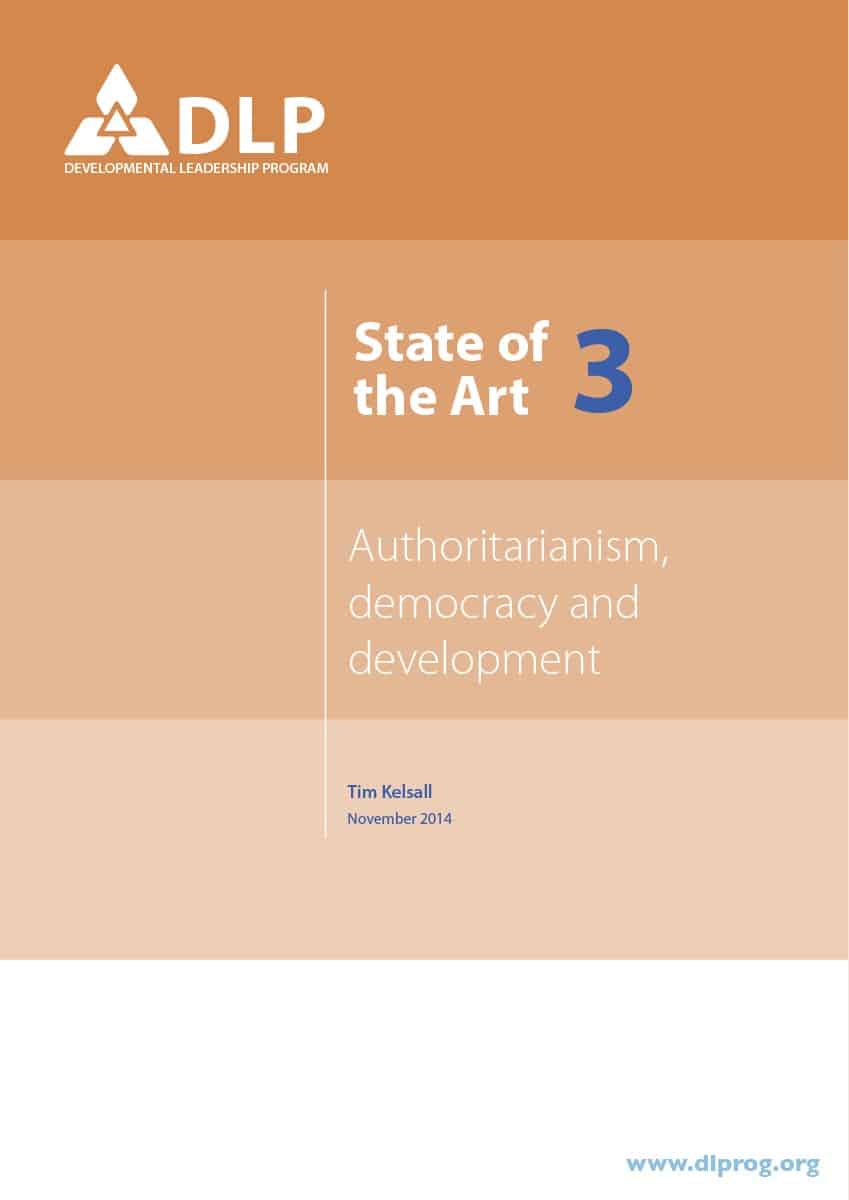This paper reviews the evidence on authoritarianism and development from the perspective of a policy-maker providing advice to an ostensibly developmental authoritarian regime. It finds that the cross-national statistical evidence on regime type and development is inconclusive, and argues that varying experiences of development under authoritarianism are better-captured by structured-focused comparisons using ‘developmental states’ and ‘political settlements’ frameworks.
The paper finds that knowing whether a state is authoritarian or democratic does not help us predict whether or not it will be developmental. Authoritarian regimes have been responsible for both astounding development successes and failures, with most regimes lying somewhere in between. The performance of democracies tends to be less extreme, though there has been at least one democratic big developmental success. In general, there is little to choose performance-wise between democracies and authoritarian regimes, although the former appear to be difficult to sustain in low-income conditions.
Contextual characteristics that underpin developmental states include: internal and external threats incentivising development; institutionalized solutions for leadership succession; flexible policies adapted to the country’s factor endowments; and at least an incipient enforcement and implementation capability. In democracies there are extra conditions: an elite committed to democracy as the best way of maintaining its privileges, and citizens organized enough to ensure democratic institutions are genuine.
Although ‘developmental states’ and ‘political settlements’ frameworks provide a good starting point for thinking about development in particular authoritarian regimes, they do have their blind spots. In particular, they have little to say about whether transitions from less to more developmental forms of authoritarianism are possible or how they take place, or how transitions from authoritarianism to democracy can be managed without derailing development. More research on these issues is needed.










